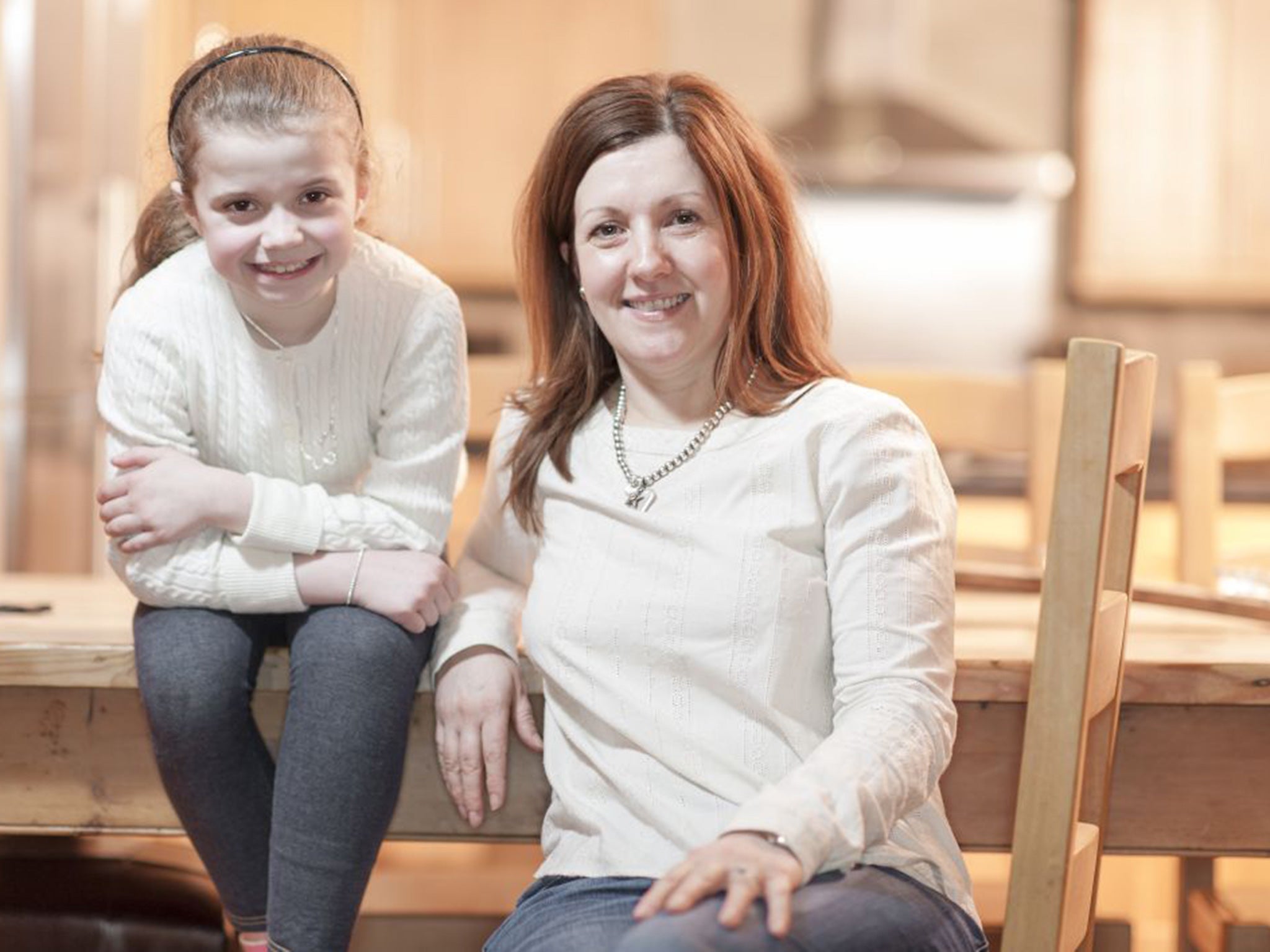‘The care Morven receives at GOSH is the best in the world'
'It is somewhere that kids, regardless of where they live, can get treatment they otherwise couldn’t'

Morven McKendrick cannot remember much about her last birthday. Instead of being at home in Bearsden on the outskirts of Glasgow, the nine-year-old was in London’s Great Ormond Street Hospital recovering from a serious operation. She was so sleepy from the medication she was taking that she could barely keep her eyes open.
“I remember some bits of it, like when my brother and my grannie came,” she recalls, sitting on the sofa beside her mother, Claire. “I tried to watch a movie, but before it started I fell asleep, because of the medicine I was taking. I think we had a cake but I wouldn’t eat it.”
The day after she was born in 2006, Morven was diagnosed with Klippel-Trénaunay syndrome, a rare condition affecting around one in 40,000 children. Symptoms include hypertrophy, the extra growth of one limb – which in Morven’s case has resulted in all of the toes on her left foot being amputated, her instep being debulked and her foot being reshaped.
For her parents, Claire, 41, and Paul, 44, the procedure Morven had last January was not only upsetting because of its complexity – their daughter was unable to walk afterwards and was in a cast up to her waist – but also because they knew it meant she would be unable to celebrate her ninth birthday at home.
“We’d always managed to avoid being in hospital on her birthday until then, but she’d been so poorly that we just had to do it,” Claire says. “She was in surgery for a long time and was extremely uncomfortable when she woke up, so they had to anaesthetise her and that’s why she missed her birthday. But there is a happy ending, because I promised her that we’d have a big party for her when we got back.”
Morven has been treated at GOSH since 2008. She is prone to lymphatic infections and high fevers and has at times been very sick following procedures. But, having witnessed every day for almost a decade the problems her condition can cause, her parents are in no doubt that the care she receives at Great Ormond Street is the best in the world.
“The hospital was nothing like I expected,” says Claire. “I knew London quite well and expected it to be a city hospital, a big tall building. But I was pleasantly surprised. It felt much more like a family place – everyone was so friendly. Paul and I felt for the first time in a long while that we were somewhere that we were going to get answers and some good advice on treatment.”
Some people might think of Great Ormond Street as a London-focused hospital, but having made the trip from Glasgow around 25 times during the course of Morven’s treatment – sometimes staying for more than a week at a time – the McKendrick family know that nothing could be further from the truth.
“We’ve met kids from Wales, kids from other areas of Scotland, and sometimes it’s their last hope,” says Claire. “I view it as somewhere that kids, regardless of their ethnicity, where they live or their backgrounds, can go to get treatment that they wouldn’t be able to otherwise. To me, the postcode should have no bearing on what the hospital does, because the things they are doing are phenomenal.” The Independent’s Give to GOSH appeal is aiming to help children such as Morven from across the country who rely on the hospital for crucial care. Some of the money raised will go towards a new 14-bed specialist unit to help children with heart failure and will support the Louis Dundas Centre for Children’s Palliative Care, for children suffering from life-limiting or life-threatening illnesses.
The money will also fund family support, including accommodation for parents so they can stay close to children going through stressful treatments – which is very important for parents like Claire and Paul who live far away. In 2015 alone, GOSH had 643 visits from patients north of the border. “When you’re looking after a sick child, just to be able to remain as a unit is the biggest thing,” Claire says.
When Paul and Claire were first trying to understand Morven’s illness, they did what many do and turned to the internet for answers. While Claire says that “Dr Google” can be helpful with finding the latest research papers about rare conditions, she herself has stopped looking because of the risk of finding things “you don’t want to read”.
She adds: “My advice to other parents would be to find someone to filter what you get through the internet – we use my brother for that.”
Morven, whose health has improved enormously since her last birthday, is now looking forward to reaching double figures in 2016. She has always loved parties – “If there was a cake, I’d go” – and is excited about throwing her own at home this time.
Asked what she thinks about GOSH, she describes it as a “colourful” place. “After an operation, I sometimes go to a playroom with arts and crafts. Usually when the nurses come in they give me things to colour in or draw. That’s what I always think about,” she says.
To Give to GOSH go to: http://ind.pn/1Mydxqt
To find out more about our appeal and why we're supporting GOSH go to: http://ind.pn/1MycZkr
DONATE
NOW
Join our commenting forum
Join thought-provoking conversations, follow other Independent readers and see their replies
Comments
Bookmark popover
Removed from bookmarks